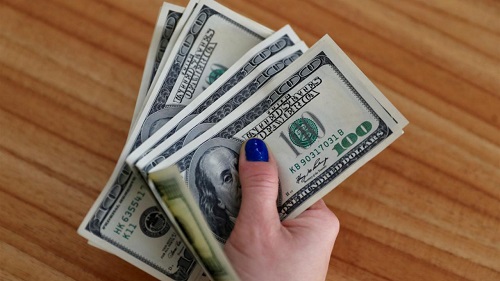•Official, black market rates at parity first time in eight years
•We have not switched to complete free float, says CBN deputy
Exactly a week after the Central Bank of Nigeria (CBN) pulled the plug on the foreign exchange (FX) market to allow gradual rates harmonisation around the Investors’ and Exporters’ (I&E) window, naira is trading higher at the black market for the first time since 2015.
This suggests that end-users are getting dollar at a discount at the black market rate, a rare occurrence in the history of the alternative FX window
The I&E window closed at N770.38/$ on Monday, losing over nine per cent to the greenback on a single day. The trading session had opened N705.5/$ but local currency crashed on spot trading touching N799/$ before seeing some appreciation to close at N770.38/$.
The session was also among the most volatile in recent times with the local currency trading at N461/$ as its lowest intraday rate.
The Guardian had reported that de-pegging of the local currency could mark the beginning of a more volatile FX rate.
Whereas the dollar has broken the N750/$ psychological barrier and trading close to N800/$ band, the global benchmark currency still sells at an average of N750/$ at the street market.
As at yesterday, the majority of traders in Lagos were quoting N745/$ as a buy offer and N755/$ as selling price, bringing the average rate to N750/$ – about 2.6 per cent behind the official market rate on the first trading day of the week.
Though naira gained N13.77 against dollar yesterday, the closing N756/$ was still slightly higher than the going rates at the black market.
The arbitrage was cancelled in 2015 when naira was trading at both the official and black market around N195/$ region.
The arbitrage grew to as much as 100 per cent last year, raising concern about the potential for an increase in round tripping, impact on capital inflow and official manipulation.
With the development, exporters may now find the official window more attractive than the parallel market to sell their remitted FX. Companies and individuals, which warehouse FX abroad, could also be motivated to bring their holdings home through the official window – possibility experts said would translate to a stronger naira over time.
The elimination of market arbitrage and rising activities at the official window may have started taking their toll on volumes at the alternative market. The Guardian is reliably informed that most of the street traders have run out of liquidity as supply dries up.
At the weekend, a trader said trading was majorly one-way as there was no supply “at all.”
“I don’t have sell quotes because there is no dollar to sell. We can only have rates for selling if we have some notes to sell,” a dealer told The Guardian.
MEANWHILE, Bloomberg reported the Deputy Governor of the CBN, Dr. Kingsley Obiora, as saying that the recent change is not equivalent to a free float as reported by most media platforms.
Obiora, who is responsible for the Economic Policy Directorate, reportedly told the international medium in an interview in Morocco, that no country adopts a “completely free float” as FX management approach.
He added that it is too early to conclude that naira has bottomed out with the currency trading over N750/$ at the official market window.
Obiora urged Nigerians to expect more policy changes in the next few weeks, suggesting that the floating is the beginning of a series of policies to reform the market.



